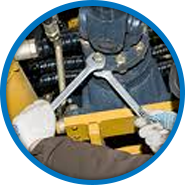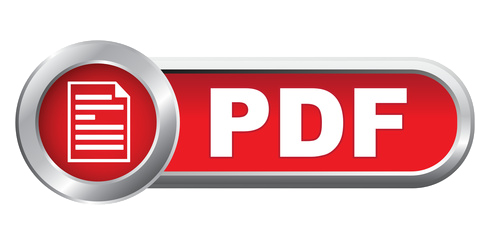Technical / Mechanical & Utility Engineering
Machinery Problem-Solving Sequence
TM129
No Schedule Course Found, You can Request Schedule or ask for a proposal to get as in-House for your team. Request eProposale
This highly relevant Seminar is intended for maintenance and machinery engineers, supervisors, technologists and technicians involved in machinery operation, maintenance, condition monitoring and troubleshooting. Because the methods and examples are generic, personnel from all industries will benefit.
The course can be used as an introduction to the field of failure analysis and prevention for those wishing to specialize in this area, or as an update of the key aspects of the field for those who already work in this area.
The course presents a systematic approach to fault diagnosis and failure prevention. It firstly adopts a general approach to machine deterioration, the mechanisms involved and the ways in which common deteriorative modes can be combated. It then turns to component-oriented studies of failure mechanisms in common items of plant. For each component type or machine system, the on-line and off-line symptoms of deterioration are presented, with significant emphasis being placed upon an inspection-based approach. Statistical methods of failure analysis are presented and examples are used to demonstrate best practice in the collection, analysis and interpretation of such data. Finally, the course dwells upon the use of condition monitoring methods in a failure analysis and prevention role, and in particular upon the use of machinery vibration monitoring and analysis.
Upon completion of this course, participants will gain an understanding of structured, results-oriented failure analysis methods for all types of machine components and entire machinery systems. Participants will learn how parts fail, why they fail in a given mode, the on-line and off-line symptoms of failure, and general failure prevention methods. Participants will learn how to collect, analyze and interpret failure statistics and will also gain an understanding of FMECA. Participants will be instructed in condition monitoring methods and will be taught how vibration analysis can be used to detect, locate, severity assess and diagnose a range of common faults in rotating and reciprocating machines.
Mechanical, Operation, Production, and Maintenance Engineers Senior Technicians, who work in power utilities, should benefit from this course. Also Senior Engineers should update and refresh their knowledge by attending this course.
- INTRODUCTION
- Meaning of a mechanical failure
- Monitoring of the failure
- Importance of mechanical failure analysis
- Relation between failure and material depreciation
- Machine depreciation rate curves
- Centrifugal pump operation
- Pump performance curves
- Pump failure and diagnosis
- Centrifugal pump trouble shooting
- Rotary pump trouble shooting
- Causes of failure and its prevention
- Performance deterioration
- Cavitations of pumps and its effect on performance
- Monitoring performance during inspection
- TRANSIENT CONDITIONS
- Causes of instability and transient conditions
- Pipeline rupture and its causes
- Hammering phenomena and its effect
- Transient condition monitoring
- Vibration and its effect on pipeline performance
- Analysis of auxiliary systems transient conditions
- Support services and its effect
- OPERATION OF MACHINES AND ITS RELATION TO FAILURE
- Start sequence of machines
- Stopping sequence of machines
- Operation of valves
- Selection of equipment and its relation to failure and safety
- Fault detection and diagnosis
- Daily, monthly, semi annual maintenance
- Failure and failure prevention
- EQUIPMENT LIFE TIME AND COMPLETE OVERHAULS
- Equipment life and its relation to depreciation
- New and used equipment failure analysis
- Failure reporting techniques
- Maintenance philosophy
- Maintenance vs. repair issue and the time for complete overhauls
- Presentation & Slides
- Audio Visual Aids
- Interactive Discussion
- Participatory Exercise
- Action Learning
- Class Activities
- Case Studies
- Workshops
- Simulation
Terms & Conditions
ACTrain reserves the right to alter the Course Schedule without Prior Notification, Fees Quoted are Subject to Terms & Conditions Outlined in ACTrain's Registration Policy







